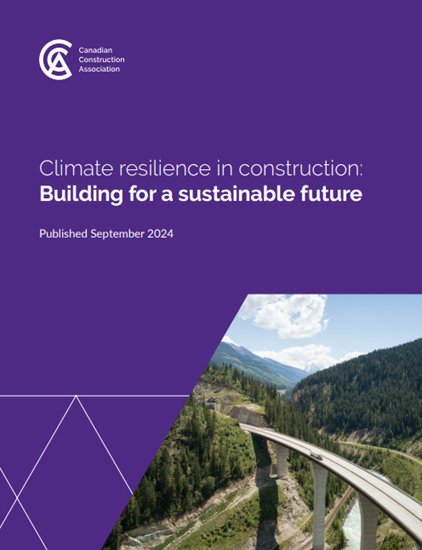 Thursday, September 19, 2024
Thursday, September 19, 2024  Thursday, September 19, 2024
Thursday, September 19, 2024 
The Canadian Construction Association (CCA) has released a pivotal report emphasizing the urgent need for increased investment and stronger policies to protect Canadians and their critical infrastructure from the increasing threats of climate change.
The report, titled Climate resilience in construction: Building for a sustainable future, stresses the importance of building resilient infrastructure that can withstand extreme weather events, protect lives, and support community well-being. Recent incidents, like the flooding in Toronto and wildfires in Jasper, show these threats are real and disrupt the everyday lives of Canadians. Calgary’s broken water main signals even deeper problems with Canada’s aging infrastructure.
“Canada’s infrastructure is the backbone of our communities, but it’s under threats from climate-related disasters,” says Rodrigue Gilbert, CCA President. “With much of our infrastructure aging or in poor condition, we must act now to future-proof our infrastructure and meet our environmental goals.”
The construction industry is already working to build sustainably, but it cannot do it alone. Significant investment, strategic planning, and collaboration are needed to build infrastructure that is both resilient and sustainable.
“The construction industry is making progress in reducing our environmental impact,” Gilbert added. “But to reach our net-zero objectives and protect our infrastructure, we need support from both stakeholders and all levels of government.”
Key points from the report:
“Too often, infrastructure investment decisions are based on what’s politically expedient, not what’s genuinely needed in a given region of Canada,” says Gilbert. “We need to focus on projects that are ‘shovel-worthy’, not just ‘shovel-ready’ to ensure Canadians have the infrastructure they depend on.”
Check out more news, articles and blogs here